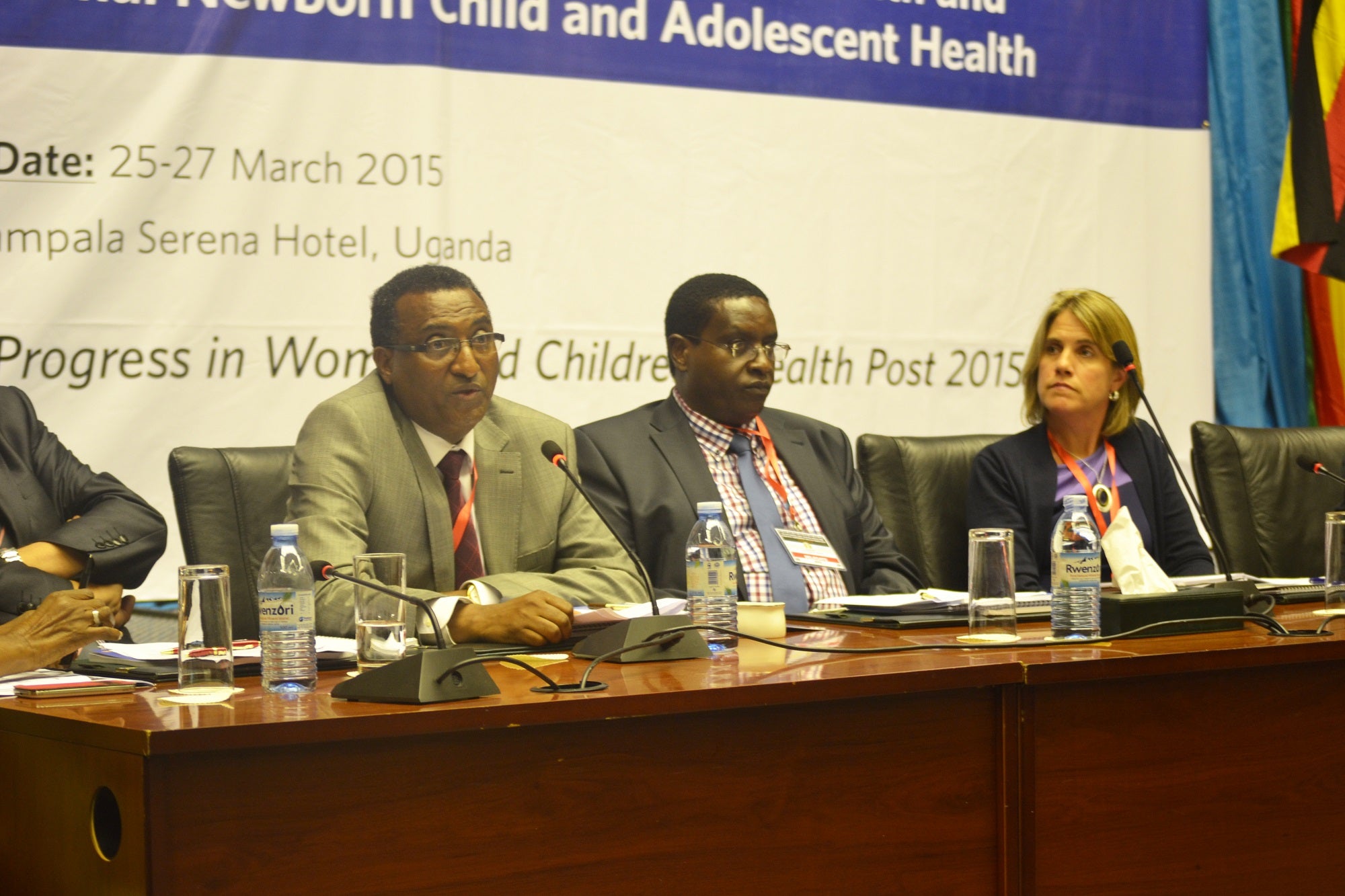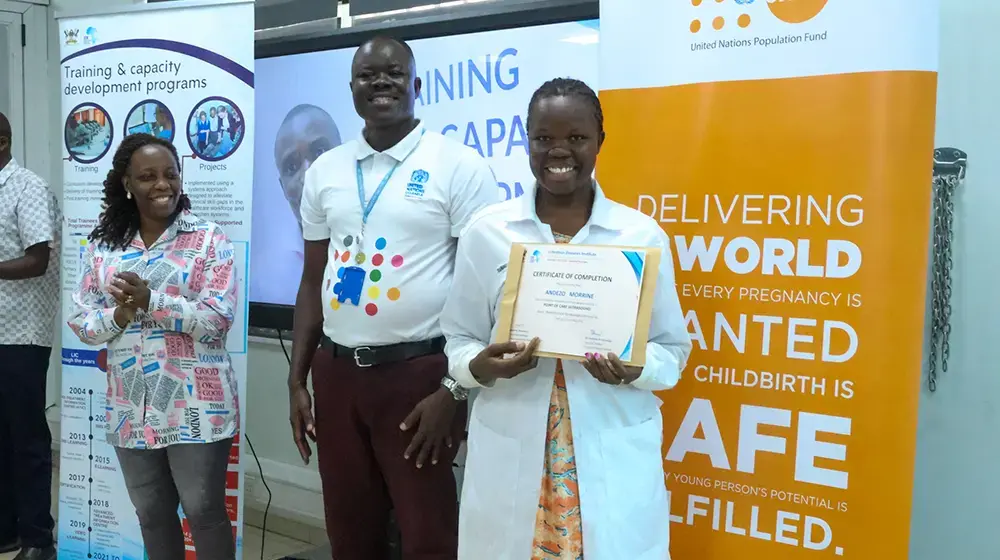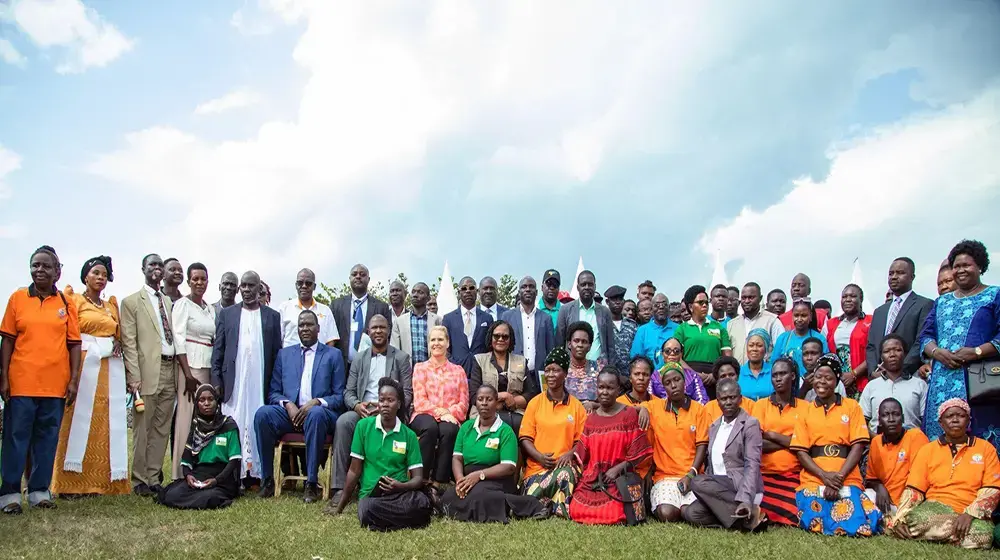When scientists, researchers and policy makers from the East Africa community met at the Kampala Serena Hotel for the fifth Annual East African Scientific Conference, UNFPA was there to ensure the agenda of maternal health is not left behind in various governments plans for the post- 2015 period.
UNFPA was part of the panel of Health Ministers and Parliamentarians who discussed how countries can accelerate and sustain progress in women and children's health Post- 2015.
The panelists, who included representatives from UNFPA, WHO and Partners in Population and Development acknowledged the fact that progress in maternal health have been recorded, but also noted that within the region, there is still a lot of unfinished business and challenges to the attainment of maternal health goals. Challenges include low levels of skilled delivery, inadequate financing for health services and high rates of adolescent births.
"At regional level there is need for countries to implement life-saving measures including increasing access to modern contraceptives," said Dr. Kidane G. Abraha the Chief Technical Specialist in Maternal Health and Family Planning at UNFPA Uganda. "There is also need to provide leadership and advocacy for sustained adherence to principles of human rights accountability in delivery of maternal and health services."
For more progress on maternal health to be realized the panelists noted, there is no magic needed. The steps towards achieving the targets are well known and include investments in midwifery, increasing access to sexual and reproductive information, services and ensuring sustainable supply of life-saving commodities including modern contraceptive methods. Alongside this, efforts must also be made to put women and children front and centre of efforts to improve maternal and child health the panel agreed.
The event was also used to launch the first East African Community Regional Reproductive Maternal New-born and Child Health Scorecard which will track commitments by EAC countries and Development Partners towards the elimination of preventable deaths among women, new-borns and children in post 2015.




